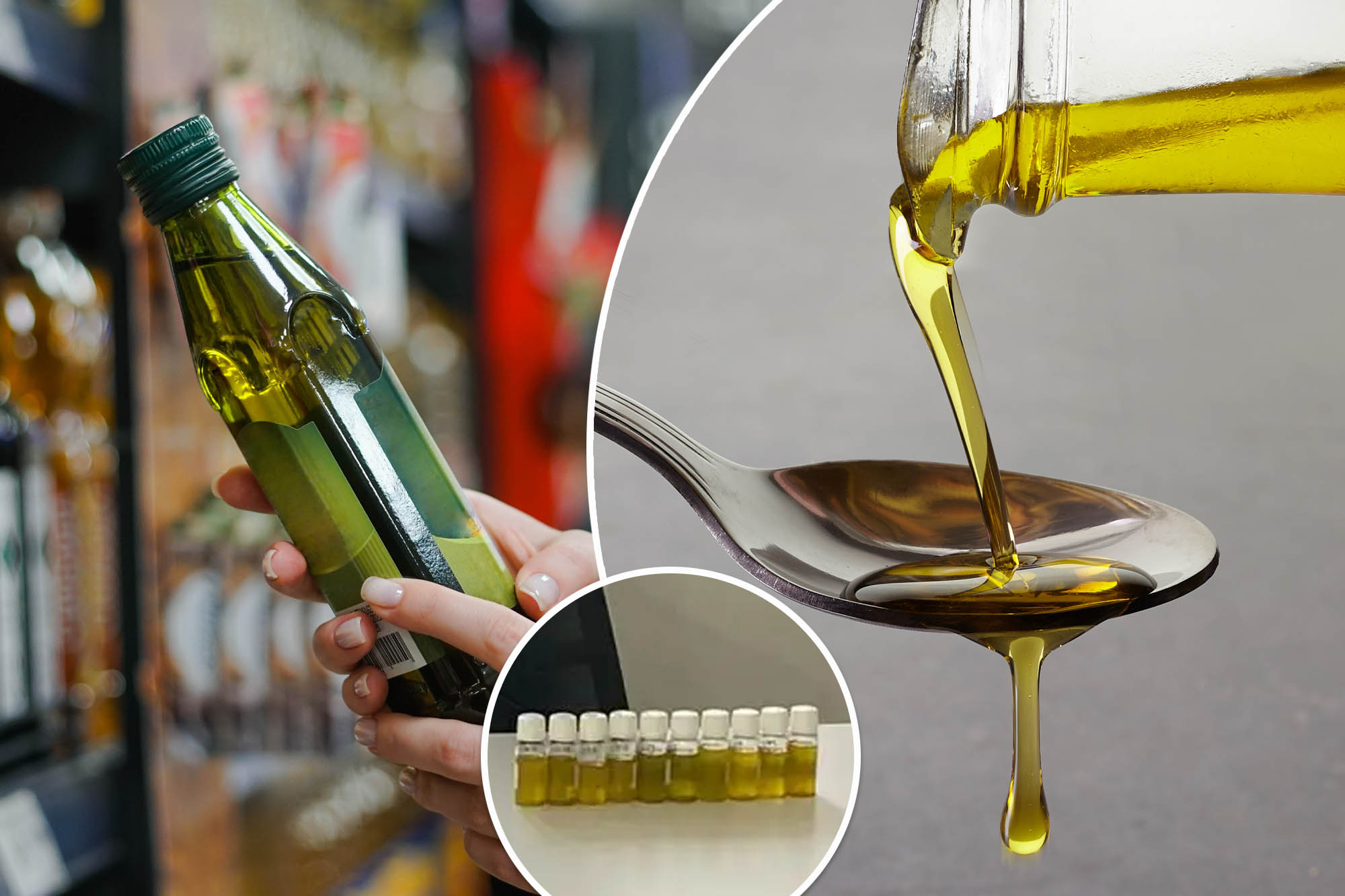
Don’t slip some fake olive oil.
The ongoing shortage of olive oil has driven up pantry prices and led to a rise in fake “liquid gold”.
Prices have risen to an average of $12.39 per bottle – a record high reported by market analyst firm Mintec Global – which has led to an increase in fraud with some unscrupulous manufacturers diluting their products with cheaper oils. free.
And some of them are considered unfit for human consumption.
stock – stock.adobe.com
Olive oil fraud usually occurs in two main ways: manufacturers mislabeling lower quality oils as premium products, such as extra virgin olive oil, or mixing olive oil with cheap neutral oils, such as sunflower oil or grape seeds.
In some cases, free oils are also coated with chlorophyll and carotene to mimic the appearance of olive oil.
The rise in olive oil prices can be attributed to a series of poor harvests in recent years, more than doubling since 2018.
Kyle Holland, an analyst at market research group Mintec, told CNBC that the extreme weather has “significantly affected” olive oil production in Mediterranean countries such as Spain, Italy and Greece.
“Some players we talk to who have been doing this for many years wonder how they’re going to continue,” Holland said.
Others have started selling fake olive oil.
According to Professor Maurizio Servili from the University of Perugia, this has created lucrative opportunities for fraudsters.
“Olive oil is not a cheap product. It’s easier and more economical to cheat with an expensive product than with a cheap one,” he told the Daily Mail.
These five signs will help you determine whether the bottle you bought is filled with “liquid gold” or a fraudulent mixture:
1. Only the real deal can be labeled ‘extra virgin’
- Olive oil must be pure to be legally labeled “extra virgin.” Avoid products that use terms like “light,” “pure,” or just “olive oil.”
2. It has a bright and peppery taste
- The real oil will have a rich and complex aroma, while the fake oils have little, no or even a sour aroma.
3. Look for the producer’s name and the region where it was grown
- The more detailed the information on the bottle, the more likely it is to be trusted.
4. Also look for a DOP stamp
- A Protected Designation of Origin stamp specifies the region of origin and strict testing is followed.
5. Marked with a third-party certificate
Bloomberg via Getty Images
While some fraudulent activities are small-scale, organized crime syndicates, including the Mafia, also engage in large-scale operations.
Just this summer, Italian authorities busted a network of slick fraudsters selling fake oil by the truckload – with cops seizing 42 tonnes of packaged “extra virgin” worth $1 million.
#ways #youre #real #deal
Image Source : nypost.com